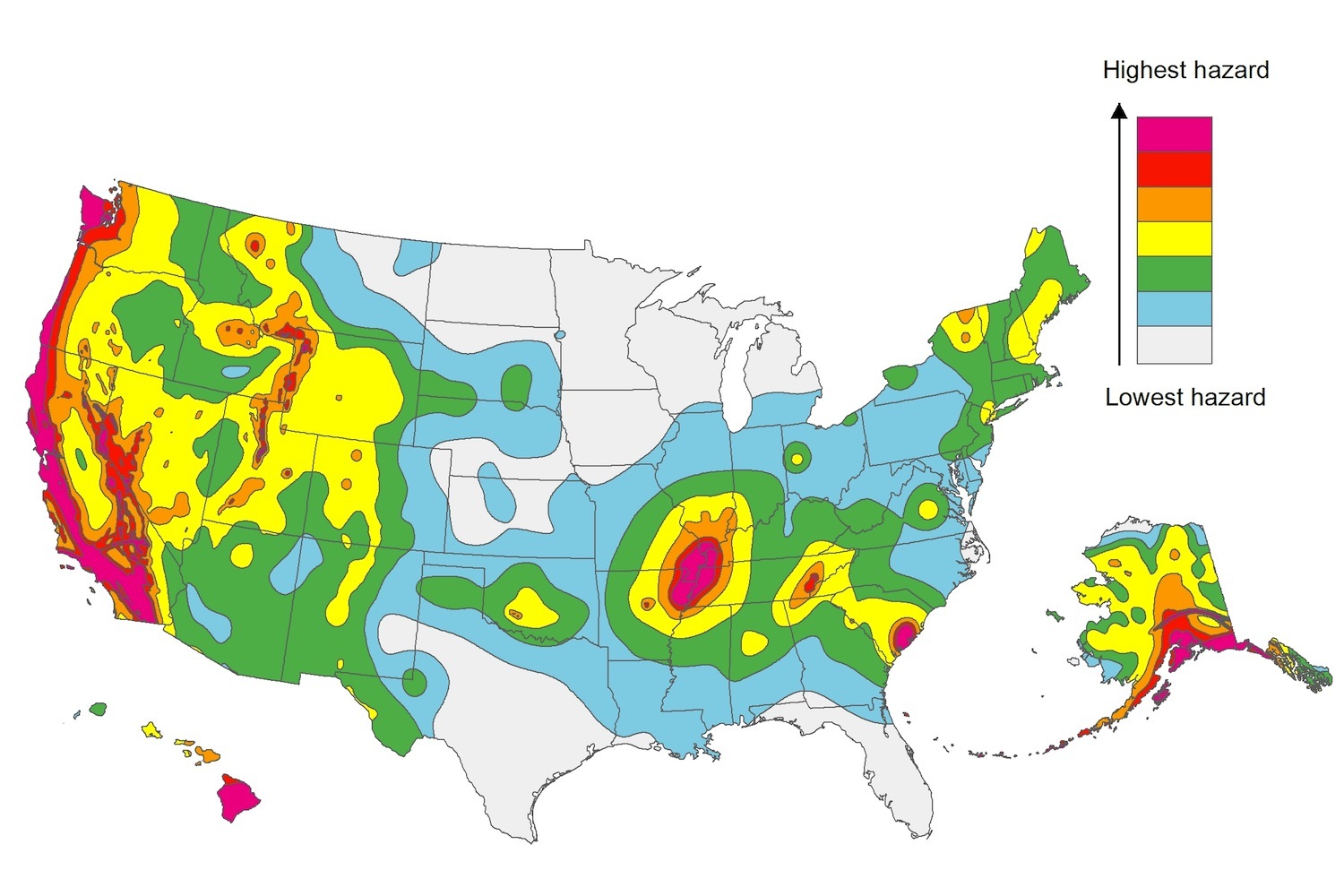The U.S. Geological Service recently released an update of U.S. National Seismic Hazard Maps that reflect the latest analysis of where future earthquakes will occur, how frequently they may occur, and their strength.
While all states have some potential for earthquakes, 42 of the 50 states have a reasonable chance of experiencing damaging ground shaking from an earthquake in the next 50 years. Sixteen states have a relatively high likelihood of experiencing damaging ground shaking. These states have historically experienced earthquakes with a magnitude 6 or greater. The hazard is especially high along the west coast, intermountain west, and in several active regions elsewhere such as near New Madrid, Mo., and near Charleston, S.C.
The eastern U.S. has the potential for larger and more damaging earthquakes than considered in previous maps and assessments. This finding is due to what scientists learned following the magnitude 5.8 earthquakes that struck Virginia in 2011. It was among the largest earthquakes to occur along the east coast in the last century, and indicated that even larger events in the region are possible.
The maps are used in risk analyses calculated using factors such as population levels, building exposure, and building construction practices. These assessments are used for establishing building codes, in the analysis of seismic risk for key structures, and in determining insurance rates. They can also aid emergency preparedness plans, and private property decisions such as re-evaluating one’s real estate and making it more resilient.
(http://www.usgs.gov/blogs/features/usgs_top_story/new-insight-on-the-nations-earthquake-hazards/)
Related Stories
| Feb 9, 2012
Rapid growth of zero energy buildings expected
Much of that growth will be in the European Union, where near-zero energy buildings are mandated by 2019 for public buildings, and by 2021 for all construction.
| Feb 9, 2012
Stiffer OSHA fines put strain on Kansas contractors
A fine for a violation that once cost between $750 and $1,200 now runs $7,000 or more per incident, according to a state industry association official.
| Feb 9, 2012
Webinar focuses on lessons learned from LEED-certified industrial project
A Construction Specifications Institute webinar will focus on the lessons learned through the design and construction of a LEED-certified industrial project, Better Living Mill Shop, the first industrial building in Central Virginia to earn LEED certification.
| Feb 8, 2012
California likely to eliminate redevelopment agencies
Leaders of California cities had been trying to fashion a compromise with lawmakers after the state Supreme Court ruled the state had the authority to eliminate the agencies and use their property tax money for local services.
| Feb 8, 2012
Project aimed at economical seismic retrofits on historic Memphis structures
The group will develop a low-cost seismic retrofit model that would benefit aging brick-and-mortar structures. It involves bolting steel brackets to existing wooden floor and ceiling joists.
| Feb 8, 2012
Houston signs on to Better Buildings Challenge
The challenge has about $4 billion in federal and private-sector funds, which it will use for building energy upgrades nationwide in the next two years.
| Feb 8, 2012
OSHA offers free health and safety consulting for small businesses
The consultants offer confidential, non-punitive advice.
| Feb 8, 2012
Controversy over pay for prisoners on roofing job in Michigan
The disagreement was over whether the prisoners should have been paid prevailing wage for their brief time on the job because the project was paid for with a U.S. Department of Energy grant.















